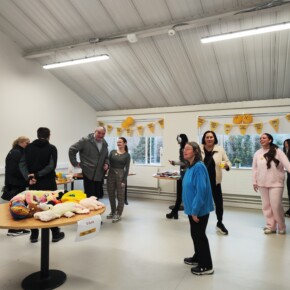Ward calls for end of “postcode lottery” of CAMHS appointments
Mike Finnerty 22 Aug 2023
Sinn Féin spokesperson for Mental Health Mark Ward has called for an end to what he calls a “postcode lottery” of services for children attending the Child and Adolescent Mental Health Services.
The latest figures show that there are over 4,300 children waiting on a first-time appointment with CAMHS, with Ward noting there are “huge discrepancies” on how long a child has to wait based on where they live.
The Dublin Mid-West TD said the figures “are of no surprise,” remarking that figures “the waiting list under this Government for CAMHS has only gone one way and that is up.”
“There are now over 4,300 young people waiting on a first-time appointment with CAMHS – when this Government was formed in 2020 this list was at 2,115 children, an increase of 106% under this Government’s watch.”
Ward expressed concern that 735 those on the waiting list have been waiting for over a year for CAMHS services.
“A postcode lottery of care has developed which has led to some children waiting longer for an appointment based on their location.”
“Access to children’s mental health services should be based on need and not where you live,” he said, pointing to Kerry having 976 young people on the waiting list.
“Kerry was the subject of the Maskey report, which was a damning indictment of CAMHS. The report was published in January 2022 and the government has failed to act,” he said.
The data shows that the CHO 2 region, which covers Mayo, Roscommon and Galway, has seen a 600% increase in waiting list times for appointments since 2020.
“If children do not get early intervention mental health supports at primary care level, they are more likely going to need the more acute services provided by CAMHS,” said Ward.
“We are gone beyond crisis point in children’s mental health care and the Minister has gone missing.”
Ward pointed to the latest Mental Health Commission report’s 49 recommendations and he said he has “no idea” if Government will act on them.
“Capital investment and accountability reforms are needed in the sector, along with planning for staff to meet the demands of the service,” he said.
“There is also a cliff-edge in our mental health services for young people at 18. There is inconsistent continuity of care, and many young people fall out of services or never access them.”
“These failures mean that early intervention is passing our young people by.”











